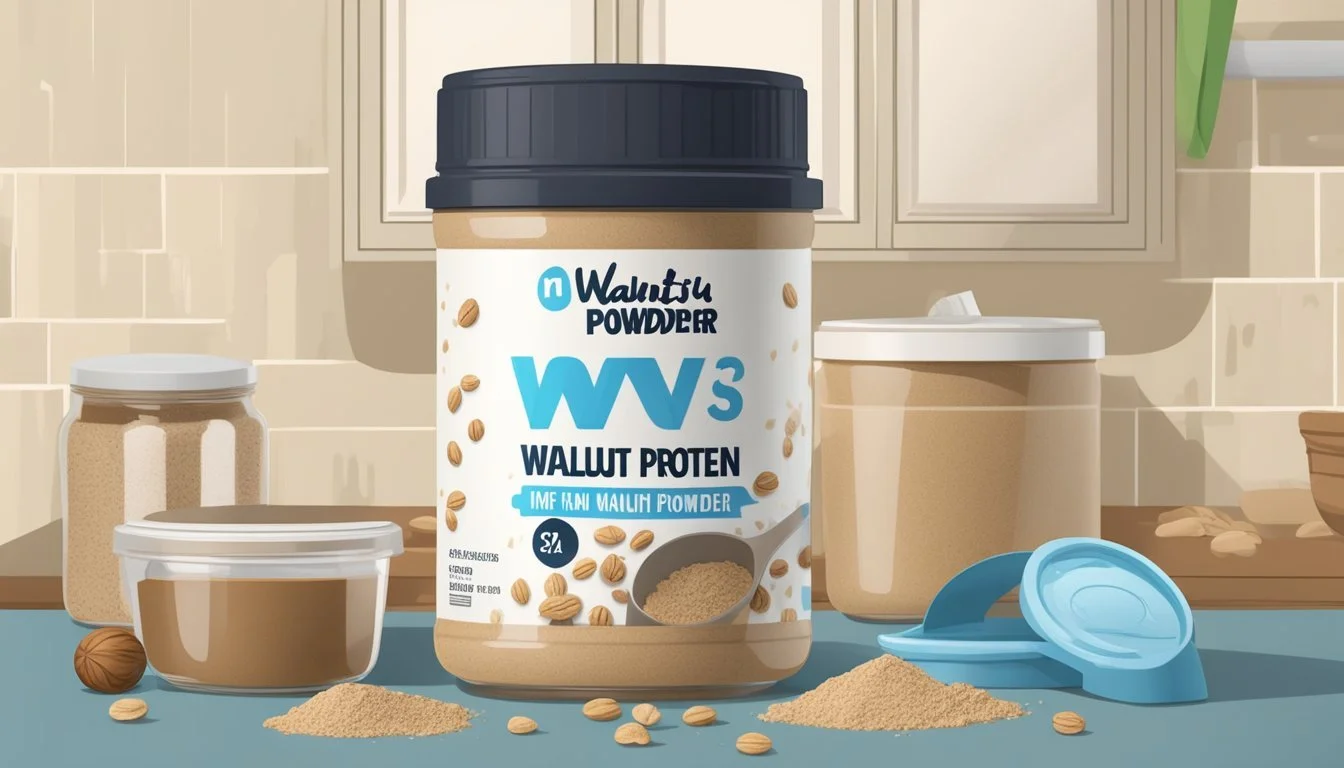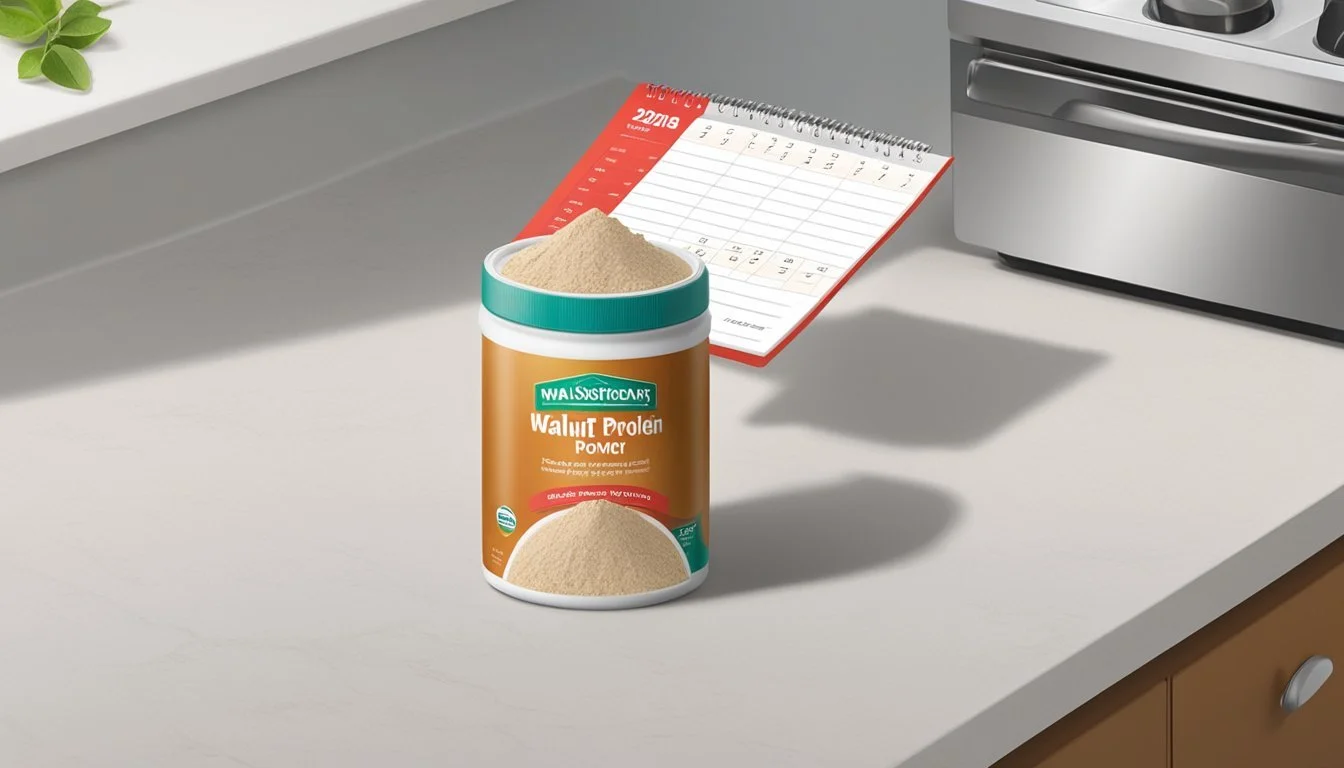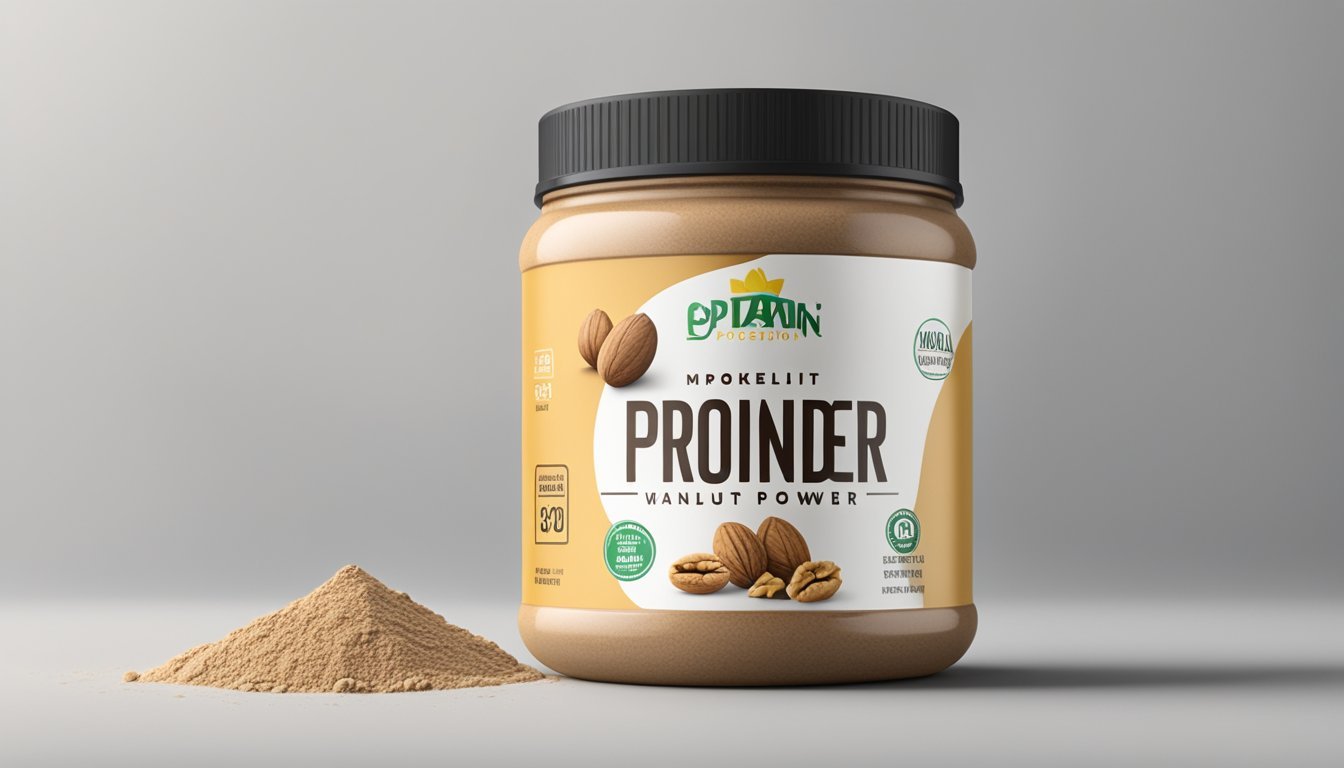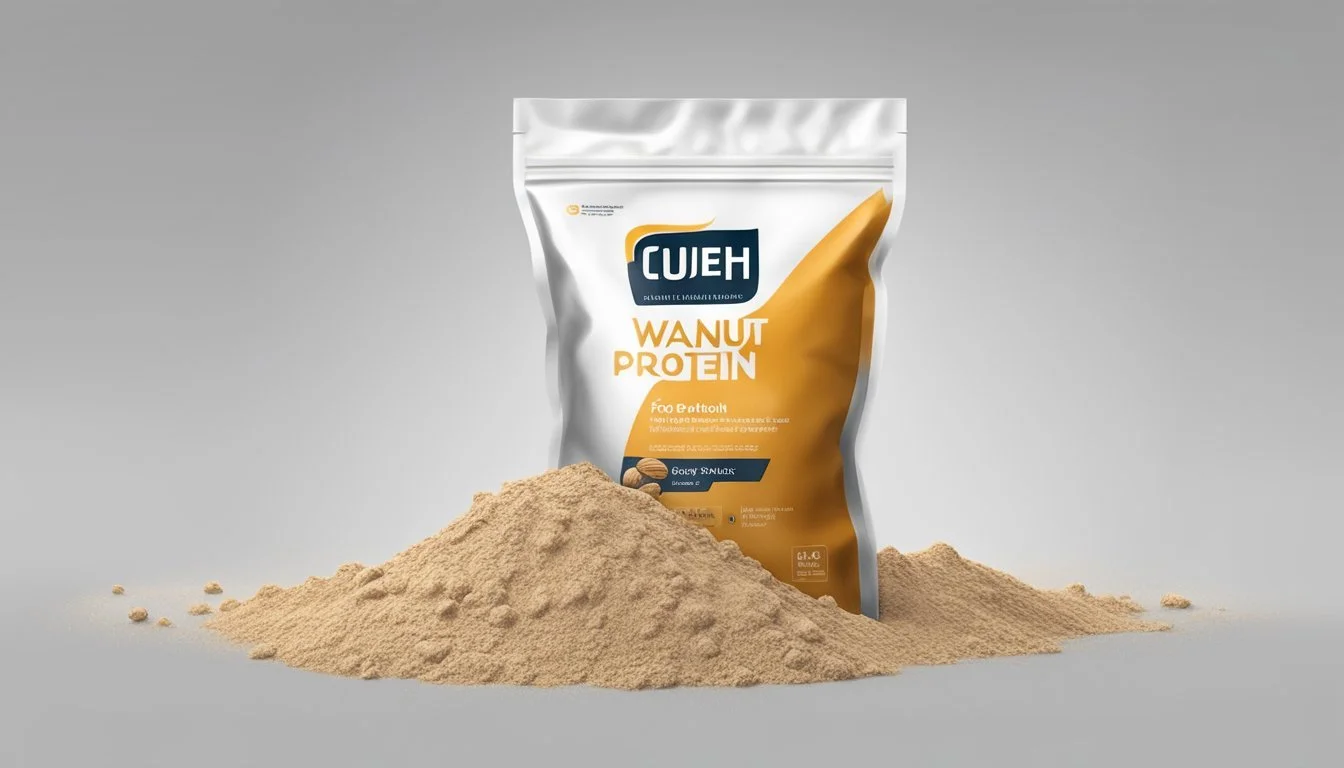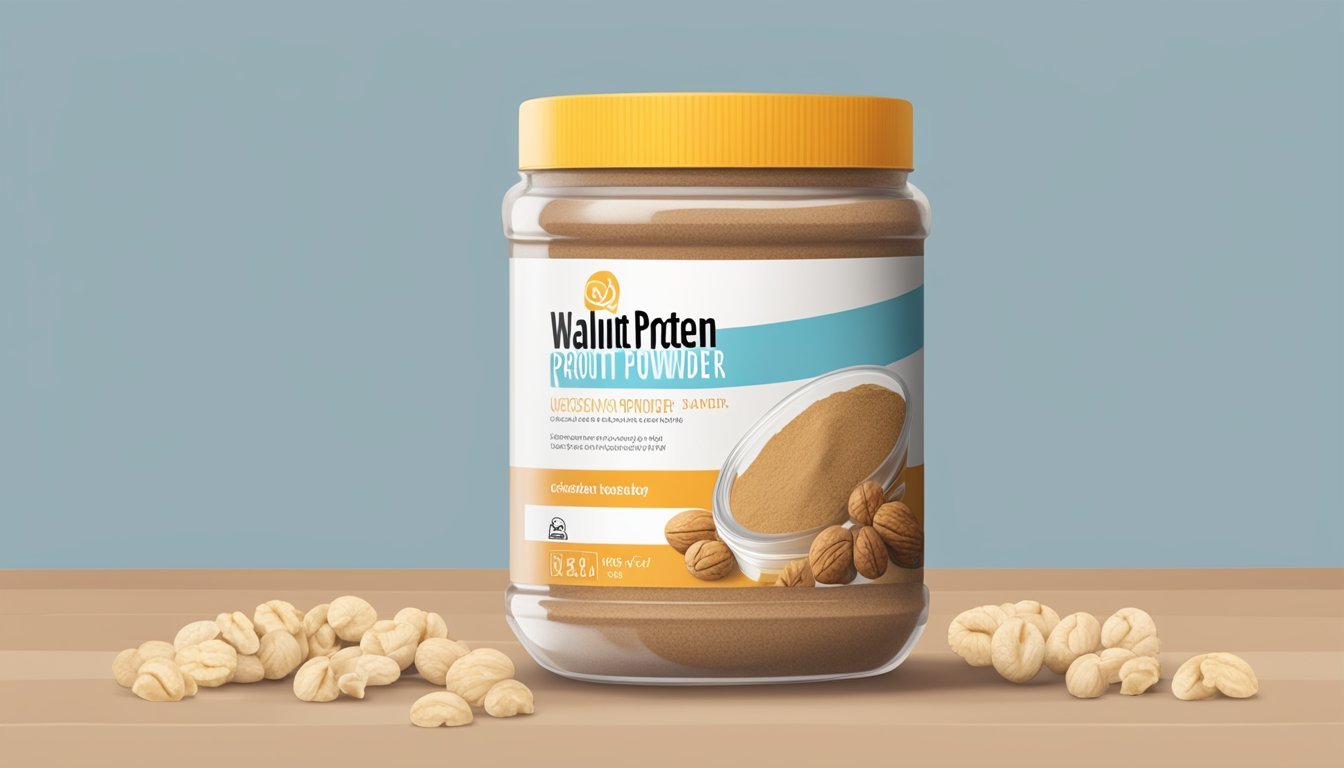Does Walnut Protein Expire?
Shelf Life and Storage Tips
When considering the shelf life of protein powders, walnut protein is no exception. Like other protein powders, walnut protein can indeed expire and lose its nutritional quality over time. Various factors, such as the presence of additives and the storage conditions, can influence the longevity of walnut protein powder.
Walnut protein powder is generally safe to consume within its labeled expiration date, which typically ranges from six to 24 months after production. Beyond this period, the protein may start to degrade, resulting in a decrease in nutritional value and potential changes in taste and texture.
For optimal health benefits, it is crucial to store walnut protein powder in a cool, dry place. Maintaining proper storage conditions helps preserve its freshness and nutritional properties, ensuring that it remains a valuable part of your dietary regimen.
Understanding Protein Powders
Protein powders come in various forms and provide essential nutrients for muscle repair and overall health. Walnut protein, a plant-based option, offers unique benefits for wellness and weight management.
Types of Protein Powders
Whey Protein: Derived from milk, this type is popular for its complete amino acid profile and rapid absorption. It supports muscle recovery and growth.
Casein Protein: Another milk-derived variation, but it digests slowly, providing a sustained release of amino acids. It's beneficial for nighttime use.
Vegan Protein Powder: Sourced from plants like peas, rice, hemp, and walnuts, these are ideal for those avoiding animal products. They are easier to digest and hypoallergenic.
Walnut Protein: As a plant-based source, walnut protein offers a nutty flavor and is rich in healthy fats and antioxidants.
Nutritional Profile of Walnut Protein
Walnut protein is notable for its high levels of omega-3 fatty acids, which benefit heart health. It also contains essential amino acids necessary for muscle repair and maintenance.
Protein Content: Offers a substantial amount of protein per serving, though less than whey.
Vitamins and Minerals: High in vitamins such as B6, and minerals including magnesium and phosphorus, contributing to overall well-being.
Healthy Fats: Rich in unsaturated fats, promoting cardiovascular health.
Benefits in Wellness and Weight Management
Walnut protein supports weight management by helping to increase satiety due to its fiber content. Its nutrient richness makes it a valuable addition to daily diets.
Muscle Recovery: Essential amino acids aid in the repair and growth of muscle tissue, similar to other proteins.
Cardiovascular Benefits: The presence of omega-3s supports heart health.
Digestive Health: High fiber content aids digestion and promotes gut health.
In summary, walnut protein provides a nutritious, plant-based alternative to traditional protein powders, supporting overall health and wellness goals effectively.
Shelf Life and Expiration
To understand the shelf life and expiration of walnut protein, it's crucial to explore how long walnut products last and the impact of packaging on their longevity.
Determining Expiration Dates
Walnut protein, like walnuts, does not have a fixed expiration date. Instead, it often comes with a best-by date or use-by date. These indicators inform consumers about the time frame during which the product maintains optimal quality.
Proper storage significantly influences the shelf life of walnut protein. When kept in a cool, dry place, walnut protein powder can remain fresh for up to a year. Storage temperature and humidity play a vital role. Higher oil content in walnuts can lead to rancidity if exposed to heat or moisture. Therefore, storing walnut protein in an airtight container in a cool area helps extend its usability.
Role of Packaging in Shelf Life
Packaging plays a pivotal role in determining the shelf life of walnut protein. Airtight packaging prevents exposure to oxygen and moisture, which are primary factors that cause spoilage. Vacuum-sealed bags or containers designed for nut storage are ideal.
Using opaque packaging can also protect the walnut protein from light, another factor that can deteriorate its quality. The initial packaging at the time of purchase often includes an airtight seal, but once opened, transferring the product to a container that mimics this environment is advised.
Labels on packaging often include a sell-by date, which indicates how long a store should display the product for inventory purposes. Adhering to these guidelines ensures that the walnut protein retains its nutritional value and flavor for as long as possible.
Factors Affecting Protein Powder Degradation
Several factors influence the degradation of protein powder, including storage conditions and methods used for preservation. Understanding these can help maintain the quality of protein supplements.
Impact of Storage Conditions
Synthetic and natural protein powders both degrade over time, largely influenced by storage conditions. Temperature is crucial; high temperatures accelerate degradation, while cooler temperatures slow it down.
Moisture and humidity can lead to clumping and discoloration. Excess moisture can also promote microbial growth.
Light exposure, particularly UV light, can cause oxidative damage, reducing the powder's quality. Keeping protein powders in a dark, cool place is advisable.
Signs of degradation such as clumping or noticeable color changes often indicate that the protein has begun to degrade and may not be safe to consume.
Protein Powder Preservation
For preserving the quality of protein powders, airtight containers are essential. They reduce exposure to moisture and light. Some manufacturers add stabilizers to prolong shelf life.
Minimizing air exposure is also critical; vacuum sealing can be an effective method.
Maintaining a stable environment helps. Protein powders should be stored in areas with consistent cool temperatures and low humidity.
Regularly check for signs of spoilage. Clumping and off smells can indicate that the protein powder is degrading. If any signs are present, it is best to discard the product.
Signs of Spoilage in Protein Powders
When assessing the freshness of protein powders, including walnut protein, several indicators can help determine if the product is safe to consume. Key signs to watch for include visual cues, smell, and potential health risks.
Visual and Olfactory Indicators
Visual signs such as the presence of mold or changes in the texture of the protein powder indicate spoilage. Mold growth can appear as green, black, or white patches within the powder. These changes are definitive indicators that the protein has deteriorated.
The smell of the protein powder is also significant. A rancid or sour odor often signals that the oils within the walnut protein have spoiled. Fresh protein should generally have a neutral or slightly nutty scent. Any deviation from this, especially if it smells off or unpleasant, is a clear sign to avoid consumption.
Health Risks of Consuming Expired Protein
Consuming expired protein powder can lead to different health risks. Degraded ingredients can cause digestive issues such as bloating, gas, stomach cramps, nausea, and vomiting. These symptoms occur because spoiled protein powders may harbor harmful bacteria or other pathogens that cause gastrointestinal distress.
Foodborne illnesses are a concern if the protein powder is significantly past its expiration date. Even if the powder does not show visual spoilage, it can still be unsafe. Thus, for food safety reasons, it’s advisable to dispose of any protein powder that shows signs of spoilage or is far beyond its best-by date.
Proper Storage Practices
When storing walnut protein, maintaining its freshness and potency is crucial. The right environmental conditions and proper containers can significantly extend its shelf life.
Optimizing Environmental Factors
Walnut protein should be stored in a cool, dry place. Ideal temperatures range between 50-70°F (10-21°C). Excessive heat can degrade the protein content, while high humidity might introduce moisture, leading to mold growth.
Store walnut protein away from direct sunlight and heat sources. This helps in maintaining its freshness and potency over time. Humidity levels should be kept below 65% to prevent any moisture accumulation that can spoil the product.
Utilizing Containers and Packaging
To keep walnut protein fresh, use airtight containers or vacuum-sealed bags. These prevent exposure to air and moisture, which can degrade protein quality. Ideally, choose opaque containers to block out light, which can also impact the walnut protein's shelf life.
Using resealable bags is a good option for those who frequently use walnut protein. This ensures the product remains sealed between uses. Label containers with the date of storage to keep track of how long they've been stored. Proper packaging is key to maintaining the integrity and nutritional value of walnut protein.
Frequently Asked Questions by Consumers
When considering walnut protein, consumers often have questions about its nutritional benefits and safety. These inquiries usually focus on the nutritional content and how to properly store and use the product to ensure it remains safe and effective.
Inquiries about Nutrition and Health
What nutrients are found in walnut protein?
Walnut protein is rich in essential nutrients, including omega-3 fatty acids, proteins, vitamins (such as vitamin E), and minerals like magnesium. These components aid in maintaining overall health, muscle repair, and reducing inflammation. For fitness enthusiasts, walnut protein is an excellent source of plant-based protein.
Is walnut protein beneficial for fitness?
Yes, walnut protein is beneficial for fitness due to its high protein content, which aids in muscle recovery and growth. The omega-3 fatty acids also help reduce exercise-induced inflammation. Dietitians and nutritionists often recommend it as part of a balanced diet for athletes and those leading an active lifestyle.
Can walnut protein improve my diet?
Incorporating walnut protein can enhance a diet by providing an additional source of plant-based protein and essential fats, which are crucial for heart health. It's a versatile ingredient that can be added to smoothies, baked goods, and other dishes to boost their nutritional profile.
Questions on Product Use and Safety
How should walnut protein be stored?
To ensure maximum shelf life, store walnut protein in an airtight container in a cool, dry place. Refrigeration is recommended if the climate is warm, as it prevents the protein from becoming rancid. Proper storage is key to maintaining both safety and nutritional quality.
Does walnut protein expire?
Yes, walnut protein does expire. Generally, it remains good for up to one year when stored correctly. Signs of expiration include a rancid smell and a bitter taste. Consuming expired walnut protein can pose food safety risks, so it's essential to check the expiration date and storage conditions.
Is it safe for people with nut allergies?
No, walnut protein is not safe for individuals with nut allergies. It contains proteins that can trigger allergic reactions. If you have a nut allergy, consult with a dietitian or nutritionist for suitable protein alternatives to ensure safety and avoid health risks.
Tips for Consumers
To make the best use of walnut protein, it’s crucial to store it properly and understand labeling for freshness. These practices help maintain its quality and effectiveness, especially for uses like muscle recovery and overall wellness.
Recommendations for Optimal Use
Storage Conditions: Keep walnut protein in a cool, dry place, away from direct sunlight to preserve its freshness. An airtight container is ideal, and refrigeration can extend the shelf life.
Senses Check: Before consuming, always perform a sniff test to detect any off smells indicating rancidity. Look for changes in color or texture.
Usage Versatility: Walnut protein can be added to smoothies or baked goods. It's beneficial for muscle recovery due to its high lysine content.
Monitor Additives: Check ingredients for any unwanted additives that might affect health goals like weight loss or wellness. Pure walnut protein without additives is preferable.
Understanding Labels and Dates
Manufacturer Dates: Labels typically include a “best by” date. This indicates the period during which the protein is expected to maintain optimum quality.
FDA Guidelines: While the FDA does not mandate expiration dates on walnut protein, they require accuracy in labeling. Consumers should be aware that walnut protein can remain usable beyond the printed date if stored properly.
Retailer Information: Purchase from reputable retailers to ensure the product has been stored appropriately before reaching you.
Packaging Integrity: Ensure the packaging is intact. Damaged or opened packages can compromise the quality of the protein.
Key Points Summary
By following these tips, consumers can maximize the shelf life and effectiveness of walnut protein for various health and wellness goals. Proper storage and an understanding of labeling are essential steps.

